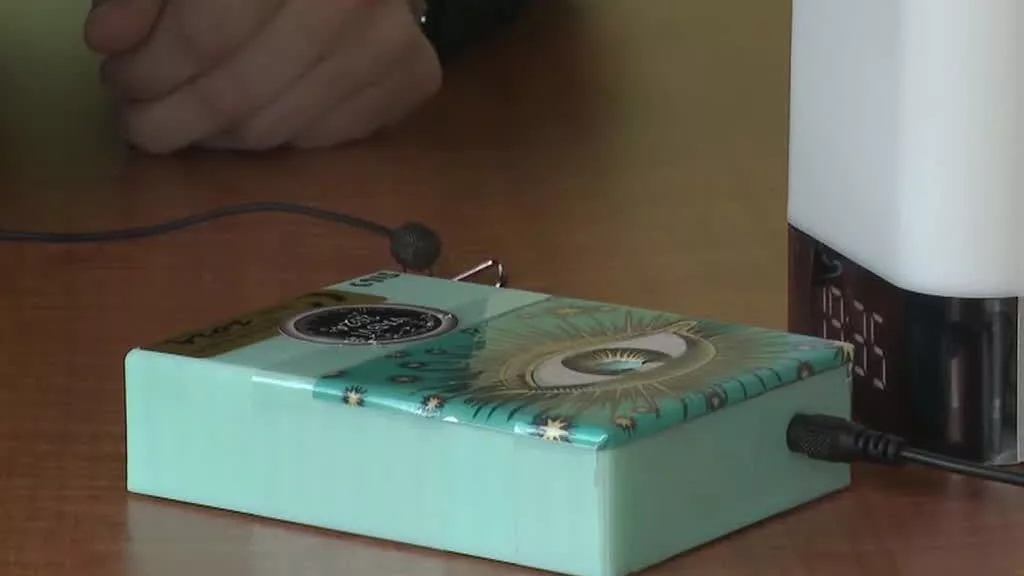
BURLINGTON, Vt. (WCAX) – Technology is making the total solar eclipse more than a visual experience by allowing people who are visually impaired an opportunity to experience this rare event.
This is the Lightsound Project. It was developed for the 2017 total solar eclipse by astronomers at Harvard University. The tool does something called sonification, which turns light data into sound.
You might not know it, but light can produce noise. That sound will give people who can’t see the moon pass in front of the sun an opportunity to experience the eclipse in a different way. “It means inclusion,” said John Thomas with the Vt. Association for the Blind and Visually Impaired.
As Vermont prepares for the total solar eclipse, the roughly 15,000 people in the state who have impaired vision or are blind are going to get the chance to experience the phenomenon.
That’s thanks to the Lightsound box, which will be hooked up to speakers in Burlington and accessible in nine other parts of the state on Monday.
“I’ll have this at Waterfront Park. We’ll have also a crowd a less crowded experience in the parking lot at 60 Kimball Avenue with a light sound device and other tactile materials,” said Thomas.
This is a product of the work of Harvard Scientists years in the making. Astronomer Allyson Bieryla says if you hear tone sounds that means the sensor is internalizing the light. But if you hear clicking, that means the sensor is internalizing darkness.
“During totality, a lot of other things were happening, to people reacting, animals reacting, the temperatures dropping, and we didn’t want to distract from that by you know, projecting loud sound we wanted to you know, it’s some people describe it as an eerie feeling. You know, there’s a lot of emotion around it,” said Bieryla.
There are 900 of these across the country, and there are options to hear the eclipse all over Vermont and New England. This is a major improvement from 2017 when the invention was just being rolled out and there were only 3 in use.
Bieryla says the most common way people hear the eclipse is through group listening sessions across the country, just like the ones in Vermont.
“We’re just kind of hoping to point you know, we have these devices all across the US, Canada, and Mexico. So we’re hoping that people are close enough to one that even if they don’t have one for themselves, they can go to an event that has one of these devices,” said Bieryla.
Thomas says it gives sighted people and visually impaired people the opportunity to enjoy the same thing at the same time, at the same place.
“I hope that this opens people’s minds. And perceptions to experiencing an event through other senses, tuning into other people who are experiencing life that way,” said Thomas.
There are also sonification apps if you’d like to experience the sounds of the eclipse without crowds too.






